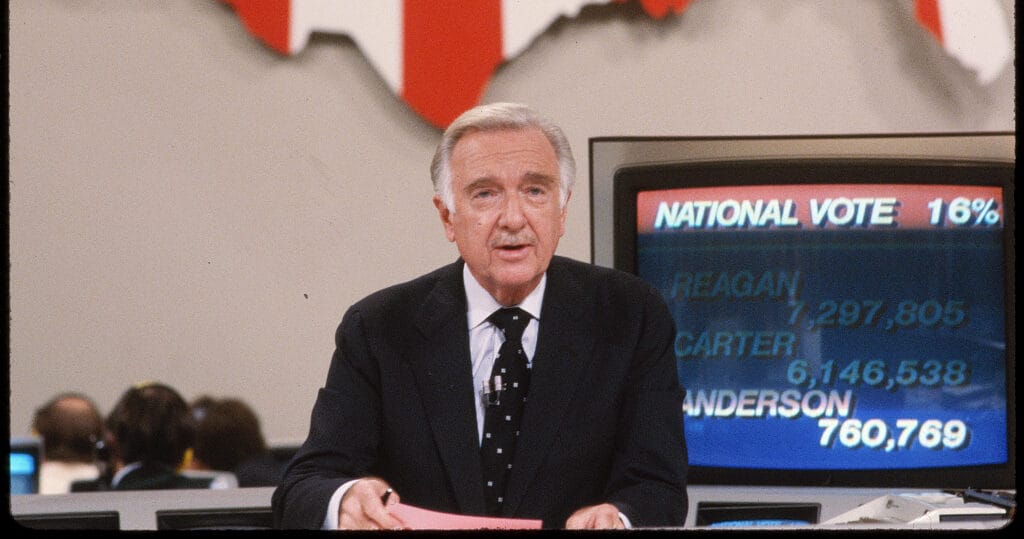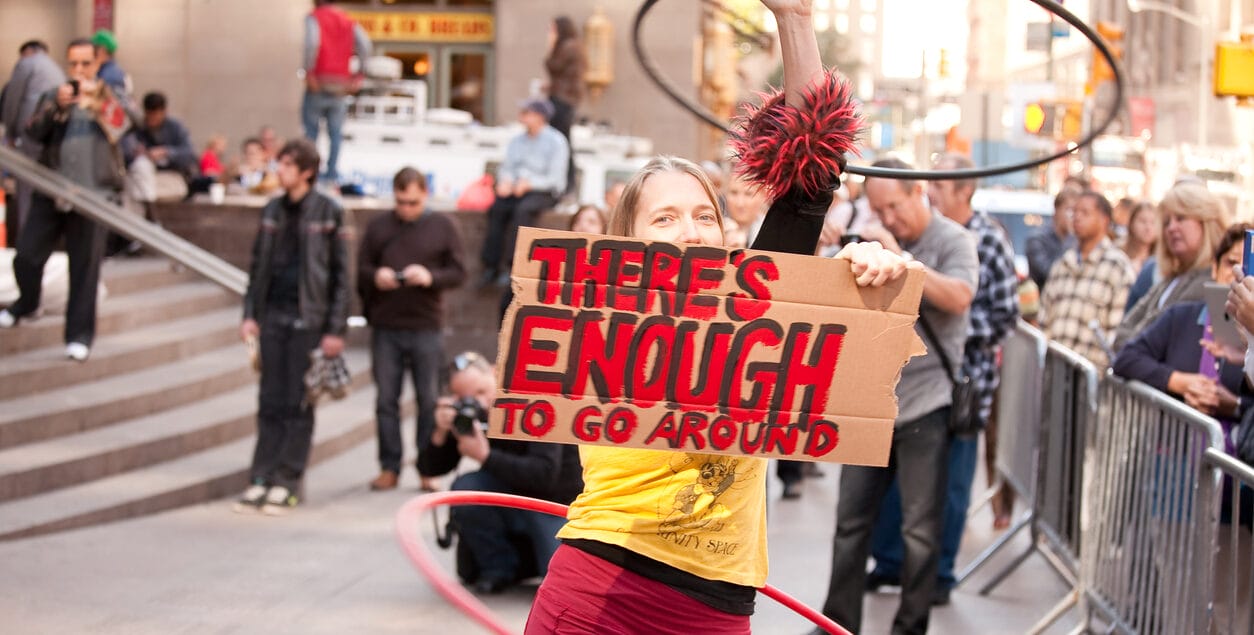Hope for local journalism

When I was growing up, we did not have a subscription to The New York Times or the Wall Street Journal. But we got the Stamford Advocate! There was no family argument over whether to watch CNN, MSNBC, or Fox News; the news came from our local cable station, News Channel 12. For anyone over the age of 30 who did not grow up in an elite metropolitan home, this was a typical experience. But times have changed. The era of local journalism is in danger of coming to an end. This is bad for consumers of news, for journalists, for local communities, and for society.
The decline in local journalism is clear: the number of newspapers closing per year continues to increase and it’s a trend with troubling consequences for society. How did this come about? There are likely several contributing factors, but the ultimate cause is the (inter)nationalization of news and politics.
In the past, people were genuinely, almost exclusively, part of their local community. Before the age of the radio and television, people socialized and exchanged news at their local churches, social halls, bars, and other community centers. Political involvement consisted of physically going out and listening to debates or stump speeches. Debates occurred on the op-ed pages of the local newspaper. And the whole town read with great interest.

Media changed dramatically: first came the radio, then the television, into the American living room. Yes, in these beginning years of the digital age one might still frequent the local social venues, read the local papers, and attend in-person events in the community. But one was no longer limited to the local for his media, his leisure, and his political exposure. One could turn on the screen and hear what Walter Cronkite had to report about the nation and the world. One could watch the president of the United States address the most pressing affairs, foreign and domestic, that affect the entire free world. Why be limited to the town hall, the pub, and the local paper?
Once one understands this technological shift from local living to national and even global exposure, the modern age needs little further explanation. The globalization of news and information that began with the radio and television increased exponentially in scope and speed with the internet. Then, with the advent of the smartphone, the ability to receive news instantly from anywhere in the world was put into every pocket. And the transformation from local to global connectedness was complete.
If the cause of the nationalization/globalization of media and the corresponding weakening of local news is now understandable, it is time to address the dangers of this shift.
First, the loss of local media and the fixation on national or international news is bad for the individual human person. As I have written previously, people are made to live in communities: for most of human history, people lived their daily lives among anywhere from a few dozen to a few hundred people. This is a healthy social network, consisting of one’s family, neighbors, church community, and village or town. In this type of community, one experiences the joys of new babies and weddings, the sorrows of illness and death, and the news of daily life in healthy doses. That is the appropriately-sized social web that the human person is made for. But humans are not wired to experience the sorrows and sufferings of the whole world. By living within the global news cycle, every day is filled with news of the world’s many shootings, storms, wars, and tragedies on a level the human person should not have to experience. A return to local media would be a healthy refocusing of human life on the community where one actually lives.
Second, communities suffer when local journalism is lacking. Take political campaigns as an example. Surely everyone reading this knows quite a bit about the 2024 presidential election. The last few months have been filled with daily details about Donald Trump and Joe Biden, and Nikki Haley. But what do you know about your local town council candidates? School board? County council? Even locally-minded folks who want to know more about their local candidates are unable to find much information on most of them. When local newspapers and television stations were thriving, there were more reporters and journalists to do the work of local journalism. More people were working to get the scoop. As these local media outlets disappear, with them goes valuable information about one’s local sphere.
Third, when people are fixated on national news items, they forget what is going on right in their backyards. National issues – from the wars in Europe and the Middle East to the crisis at the southern border to the national debt — are important. But the average citizen can do very little about them. Other than voting for good candidates for federal office, most people cannot affect change on such a grand scale.
But what about local issues? In my home state of Pennsylvania, what about the farms being sold to developers and turned into warehouses? What about the fact that school districts continue to increase property taxes (from which retirees are not exempt), leading to a situation where many elderly homeowners with no mortgage debt can no longer afford to keep their homes? What about the abysmal condition of the county-run jails and nursing homes? When people are overly focused on the national news cycle, they lose sight of the issues where they can have an impact. A citizen properly informed about and focused on local issues can affect change at the planning commission meetings, the zoning board hearings, and the town council meetings. But when local news is not the focus, local problems, and local solutions are usually not prioritized in one’s civic life.

Local news ought to play a larger role in a healthy society. But is that a realistic possibility? Many variables will determine the fate and future of local news — rapidly changing technology, financial deals involving consolidation of small media companies, philanthropic as well as for-profit investments and ventures, and the media consumption habits of society will all play a role.
But social, financial, and technological issues aside, there is a baseline question to ask: Are there young, talented people interested in becoming local journalists? Local journalism cannot and will not thrive if some of the best and the brightest of the next generation do not embrace it as a passion and a career. Much could be done to improve the prospects of local journalism if talented young people choose to get involved in this profession and help it succeed in the modern world. So, are they?
I met Carson Swick while he was an undergraduate student looking to volunteer on a political campaign I was working with. He was doing good work at his university’s newspaper and wanted to go into local journalism. I was impressed by that desire. Upon graduation, Carson returned to Pennsylvania and took a position as a web reporter for WFMZ-TV, one of the (still thriving) local media outlets in eastern Pennsylvania. He was gracious enough to answer a few questions about his work in local journalism and his thoughts on the future of local media.
Why did you decide to go into local journalism?
Humans are social and political animals, desiring not just to be free and autonomous but to seek the good life in a community with others. Humans are also rational animals, desiring knowledge to make informed decisions about their social and political reality. It is no surprise, then, that people are attracted to the unlimited access to information provided by modern technology. We want to know what is going on in the world and to be informed about social and political events. Why not know more and more, on a larger and larger scale, the world’s news delivered regularly to the supercomputers in our pockets? It is not surprising, then, that local media outlets struggle to survive when people have the events of the entire world in the palms of their hands.
I’ve always loved writing and have been passionate about serving others. This opportunity to work for a TV station that I grew up watching has allowed me to serve people by explaining breaking news events and local government happenings that directly impact a community I am very familiar with.
Didn’t you work for your school paper in college? How did that prepare you for what you are doing now?
Yes, I had several jobs at The Daily Campus, which is the student-run newspaper at the University of Connecticut. My time there shaped me as a young journalist in several ways.
As the author of a political column who took positions that were not always popular on campus, I was able to develop the relatively thick skin that’s essential for any reporter. In the fast-paced industry of hard news, making mistakes and receiving criticism for said mistakes is inevitable. You have to not dwell on them, and be confident enough in your journalistic integrity to do what you can to make it right.
As a copy editor, I had the opportunity to revise and learn from the work of other talented student journalists on a variety of topics – anything from the latest Broadway shows to fantasy football advice. I didn’t always know a lot about these topics, but my role as a copy editor meant that I was the “last line of defense” before any article that reached my desk saw publication. This made me learn to rely on my news instincts and grasp of journalistic ethics, which has proven valuable when I’ve had to act on limited confirmed information at times in my role as a web producer at WFMZ.
What do you think local news adds to society?
I think local news adds a sense of community. A WFMZ advertisement I’ve seen all over reads: “The people you know, the news you trust.” A dynamic like this allows journalists to build more intimate relationships with the officials and residents they cover in a way that more corporate or outsourced networks cannot. This, in theory, should increase trust and accountability in the community overall.
As a local journalist, I’m merely reporting on what happens in my community and trying to present all sides.
Is local news typically less partisan? If so, why do you think that is?
I think so, at least in my experience at the local government level. Many times, residents who organize against intrusive developments or pool their resources for new community facilities/services come from different walks of life and hold different political beliefs. At the end of the day, neither Democrats nor Republicans want a large warehouse or other industrial building in their backyard!
As a local journalist, I’m merely reporting on what happens in my community and trying to present all sides. I’m not forming narratives about society’s most polarizing issues in the way that a popular journalist at a major network (Fox, MSNBC, etc.) may do by looking at these issues through a predetermined lens.
These types of local papers and media companies are becoming less common as national media dominates. Do you see a future where local journalism makes a comeback?
Maybe. In some ways, I think social media has improved the situation for local media a bit in a way that wasn’t possible 20 years ago when local journalism really started to decline. Tools like Twitter/X and LinkedIn have allowed me to reach new audiences and network across the industry.
There’s also room for platforms like Substack to continue to grow and evolve. I’m generally pretty skeptical about the viability of online news sources that require paywalls, but there have been some very accomplished national journalists (i.e. Glenn Greenwald) who use these platforms to explore new topics and grow their followings. I don’t know if there’s a place for local news coverage across this medium, but the internet has seemingly made everything come and go so quickly. I bet someone will figure it out soon.
What are some of the challenges of working in local journalism? What is your favorite part of the job?
I’ll answer both questions with the same answer: Uncertainty. You never know when you’re going to get stuck at a city council meeting past midnight, but you also never know what crazy, newsworthy event will happen on any given day. For me, the unknown events always come with an adrenaline rush of trying to make sure I fulfill my two most important obligations as a journalist: To the truth and to my community.
If you could make a pitch to readers as to why they should read more local news and less national/international news, what would you say?
I’m not saying that national/international events are unimportant, but many times the issues that get a lot of attention do not directly impact most Americans on a daily basis. Things like local tax hikes, proposed developments, and business happenings in a given city get less attention when they actually have a greater impact on someone’s day-to-day life. These local issues are rarely touched by national news outlets unless they’re serving as an anecdote to set up a story about some broader nationwide phenomenon.
Have you gotten reactions from people about your work in journalism that makes you hopeful local media can make a comeback?
Yes, residents will often thank me for attending their municipal/city government meetings. They seem to have an appreciation for reporters who use their outlet as a means to shed light on issues most important to them. I notice this most when residents oppose an action they believe their local officials will take. For these people, I think having a reporter present lessens their idea that “the odds are stacked against me” to some extent.
I’m always hopeful about a “comeback” for local journalism, but I don’t think the industry is dead everywhere. I’m fortunate to work for an outlet in a decent-sized market that is very geographically diverse (cities like Allentown/Bethlehem/Easton, smaller boroughs like Hellertown and Emmaus,
and rural communities). I’d say that this diversity forces our journalists to be quite versatile, which builds our credibility among viewers in the Lehigh Valley.
Conversations like these provide the best hope for the future of local journalism. For American communities to create a culture where local news is loved and prioritized, for local news to be profitable and grow, we need talented young people willing to enter the profession and devote themselves to its success. Speaking with Carson revealed the potential for the future. He sees ways in which emerging technology can be applied to successfully promote local journalism. He grasps the importance of local journalists being on the ground, interacting with citizens, and covering their local issues. He has a passion for writing and service. And he is willing to put all the skills and energy of a young professional into this field.
Yes, if there is hope for a future where local journalism thrives, that hope rests on a future where talented, educated young professionals choose to become local journalists.
Frank Devito is an attorney at Napa Legal Institute, a religious freedom organization focused on nonprofit law, public policy, and legal talent development. His work has previously been published in several publications, including The American Conservative, The Federalist, and First Things Online. He lives in eastern Pennsylvania with his wife and children. The views expressed in this article are those of the author and not necessarily his employer.



